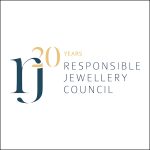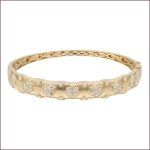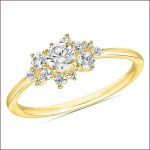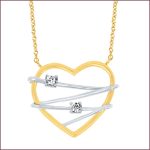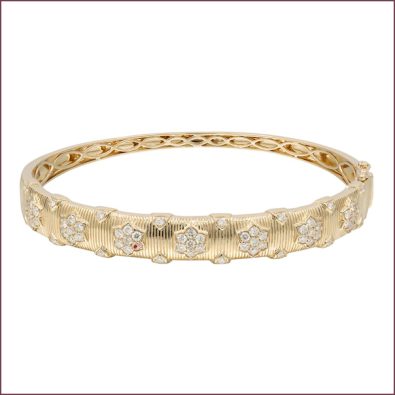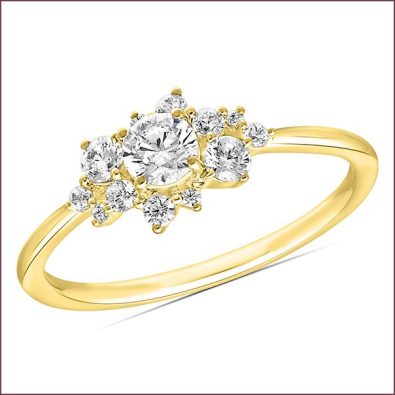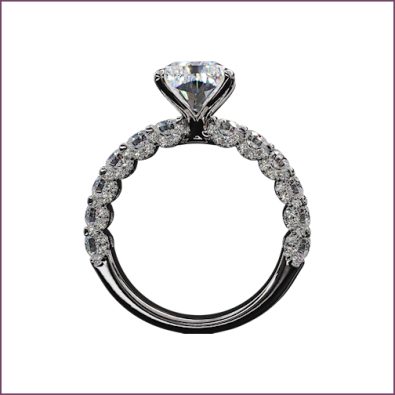Child’s Play
Parents, grandparents, and relatives spend a lot of money on the children they love. Children’s apparel and accessories alone is an $11 billion business in the U.S., according to Ibis World, the strongest consumer category in the 0-14 age group, cites the NPD Group. With 65 million kids aged 14 and under by 2016, reports the U.S. Census, this demographic is a critical one for jewelers to nurture.
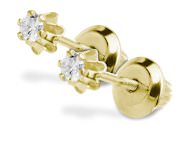 According to a recent article in theguardian.com titled, “Children’s Fashion: Small People, Big Business,” “social factors such as a rapidly increasing birth rate, parents having children later in life and a glut of baby-boomer grandparents with more disposable income at their fingertips than at any point in history have combined to make childrenswear a highly lucrative business.”
According to a recent article in theguardian.com titled, “Children’s Fashion: Small People, Big Business,” “social factors such as a rapidly increasing birth rate, parents having children later in life and a glut of baby-boomer grandparents with more disposable income at their fingertips than at any point in history have combined to make childrenswear a highly lucrative business.”
Despite the fact that children’s jewelry may encompass such a small percentage of overall sales, the category provides relationship building and year round sales opportunities for gift givers and future self-purchasers for such a small investment in product and counter space.
“Jewelers have come to realize that children’s jewelry is a department that attracts people, people who are not even looking for it,” says Audrey Robbins, Marathon, Attleboro, Massachusetts, known for its Kiddie Kraft brand. “It’s a gift department on to itself, not an add-on. Jewelers who want to be successful in this niche market cannot just stock one or two pieces, they need to have variety, and it doesn’t require a huge amount of space to show a nice selection of product.”
Best Basics
Bestsellers for fine jewelers who carry this category include quality design in silver, gold and gold plated products with small accents in diamonds, birthstones and enamel. “What we find is that people want nicer things for their children,” shares Robbins. “A good quality gift, well crafted, whether it’s gold filled, silver, or 14K. We’re known for our special earring backs enclosed with threaded safety catch that are comfortable and secure on the ear. Those little details are important.”
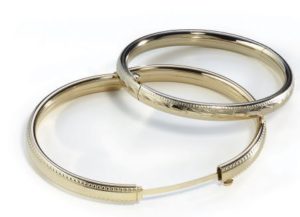
Classic jewelry styles like diamond studs, huggie hoops, guard and hinged bangles, and cross/religious pendants, bar pins and tags on ID bracelets are all bestsellers, cites Robbins. She also hails the brand’s Ladybug Collection as very popular in 14K gold and red and pink enamel; and for tweens and teens its Stepping Stones collection, beautiful sets of earrings, bracelet and necklace in motifs including butterflies, dragonflies, stars, hearts, flowers, crowns, and crosses in sterling silver with diamond or pink sapphire accent. Recently, Marathon introduced a cultured pearl jewelry collection including small pearl studs and pearls on chain necklace and bracelet.
Kathy Grenier, marketing director Imperial Pearl, Providence, Rhode Island, describes pearls a girl’s favorite from very young, citing one of its proven bestsellers for decades, the Pearl-by-Pearl program. Building a pearl necklace with single pearls gifted to her over her childhood, the program is available in Akoya pearls of two grades, Classic and Crown, in 3mm-8.5-9mm sizes, with 5-6.5mm most popular, sold loose and as a starter necklace on 14K gold chain—all with beautiful packaging and messaging.
“Jewelers are helping families begin a tradition, one pearl at a time, to celebrate special occasions with the gift of pearls,” describes Grenier. “Pearl-by-Pearl is a totally developed niche market, great for retailers who promote it. It’s a standalone, self-supporting business that builds the connection with the family jeweler to symbolize life events. There is minimal investment to buy into the program, with maximum return in customer relationship building.”
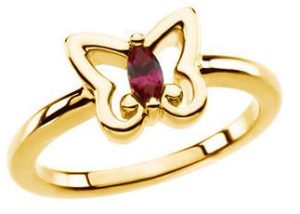 Another example comes from Honora, a Richline brand, New York, in its successful Honora Girls program, featuring designs aimed to please the youngest pearl girls. The collection includes box sets of candy color pearl studs and ensembles (necklace, bracelet earrings), as well as small pearl pendants with cross, heart and star accent, and bracelets mixed with silver and leather.
Another example comes from Honora, a Richline brand, New York, in its successful Honora Girls program, featuring designs aimed to please the youngest pearl girls. The collection includes box sets of candy color pearl studs and ensembles (necklace, bracelet earrings), as well as small pearl pendants with cross, heart and star accent, and bracelets mixed with silver and leather.
“Again, it’s all about the basics,” hails Alix Gonsoulin, director of fine jewelry, Stuller, Lafayette, Louisiana, citing gold and birthstones, as well. “Our ‘evergreen’ area is youth birthstone jewelry. It’s a perfect gift for a variety of ages. Folks are always going to be looking for it for gifts and other occasions. It’s an easy sell for someone looking for a gift for birthdays, holidays, and special milestones.”
Fashion Influence
Undoubtedly, the youth jewelry category is price point driven, says Amanda Gizzi, director of public relations and special events for the Jewelers of America, which makes sterling silver a popular metal choice. She cites color an important factor, but typically achieved with enamels and different colored cords for necklaces and bracelets.
Gemstones, aside from birthstones, are typically reserved for older women, Gizzi says, but diamonds seem to work for girls of any age. “A tiny, micro diamond set in a sterling silver design is a great way to get children excited about jewelry, imparting a sense of ownership.”
Following fashion’s lead, Gizzi cites layering an important trend for small bands, bracelets and pendants. She also sees the younger generation embracing ear climber and mismatched earring styles.
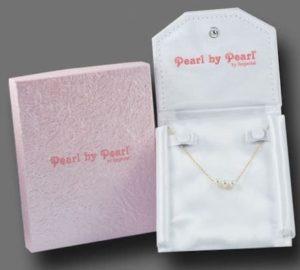
Kate Peterson, president of Performance Concepts, Montgomery Village, Maryland, believes that the rise in affordable, fashionable silver has been a major driver in this market. “Adults are much more willing to spend moderate amounts on quality pieces that are ‘sensible’ for young people than they would be to spend much more on what was considered ‘fine’ jewelry in the past (i.e. primarily gold). This gets young collectors started much earlier!”
Today more than ever, we are dealing with an “About Me” mentality, says Peterson, particularly in people under the age of 20. “Personalization is essential, and the ability to customize is a major driver in purchase decisions. If I were to recommend product categories for this target market, it would be anything that allows for personal expression—either in special order items like monogram or name bars or in symbolic displays.”
